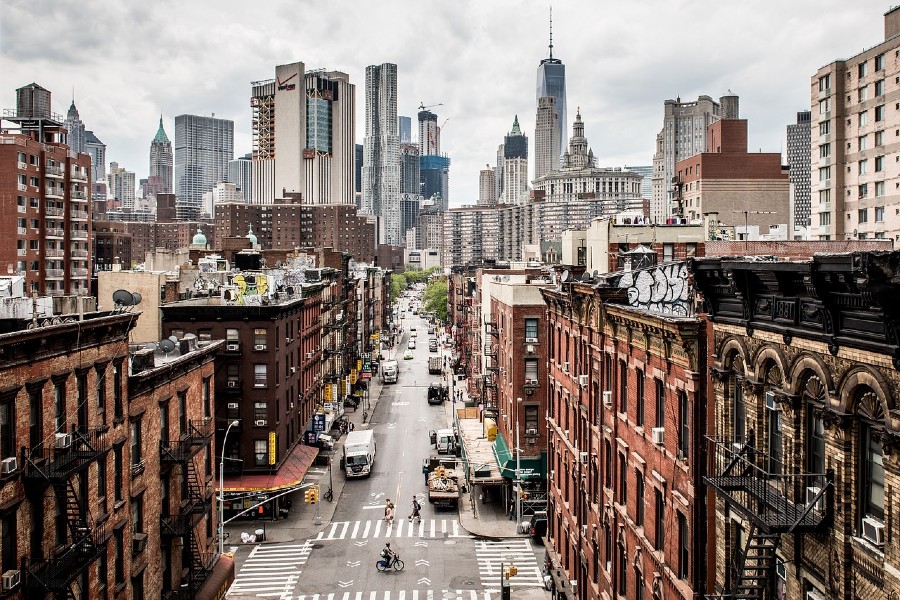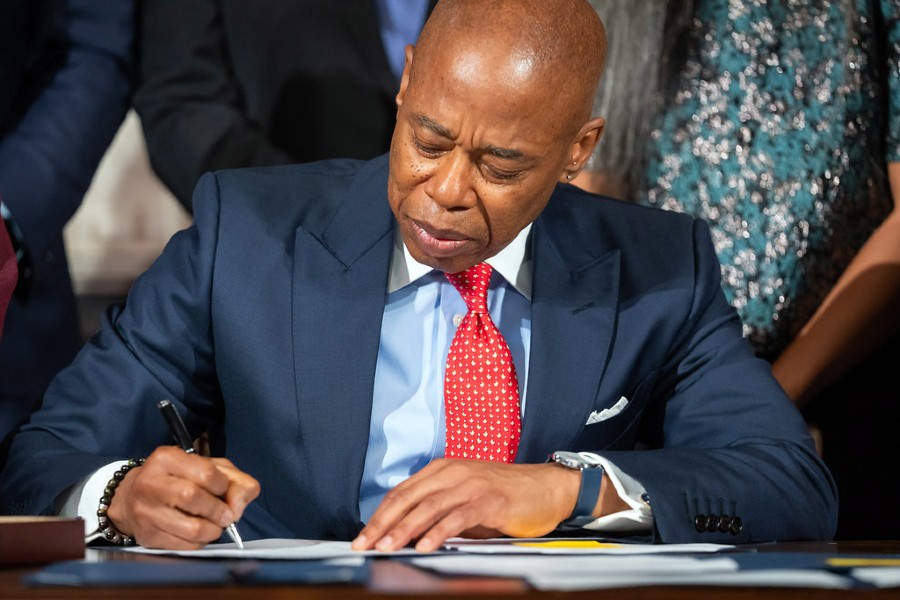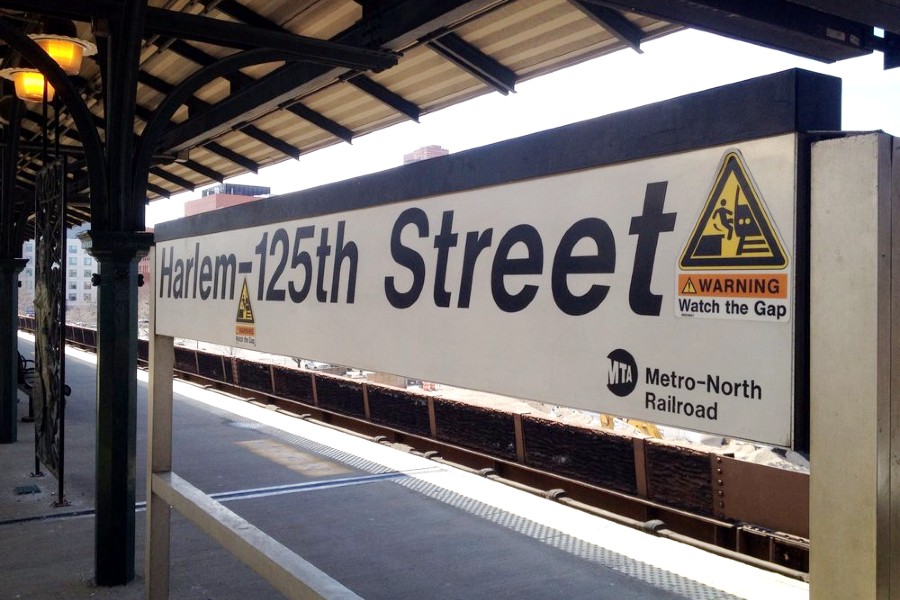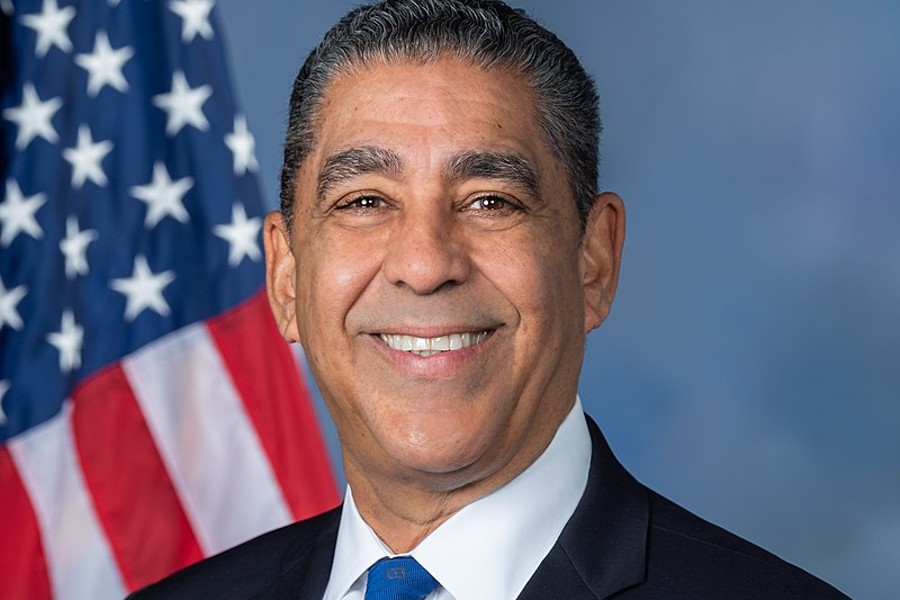 Uptown Council Member Helen Rosenthal‘s legislation which mandates the tracking of commercial storefronts across New York City, and a public database of vacant storefronts, was passed by the City Council today.
Uptown Council Member Helen Rosenthal‘s legislation which mandates the tracking of commercial storefronts across New York City, and a public database of vacant storefronts, was passed by the City Council today.
The legislation, Int 1472, will require the registration of all commercial storefront and 2nd floor spaces for the first time, providing critical, comprehensive data on current vacancies and commercial strips at risk. The occupancy status for each commercial space will be posted online; other data will be available at the census tract and Council district levels.
Solving New York City’s ongoing commercial vacancy crisis requires a multi-pronged approach, and this detailed audit will be essential to developing a more effective government response. The data will also be useful for community organizations, Business Improvement Districts, data analysts and urban planners, and other New Yorkers seeking to better understand, and develop strategies to address, commercial vacancies.
“Whether it’s our five Chinatowns, or the hundreds of Caribbean-owned businesses in Flatbush, or the South American restaurants and businesses of Elmhurst – successful small businesses are the backbone of the middle class, particularly for new immigrants. These businesses provide critical neighborhood services and culturally-relevant retail for so many New Yorkers,” said Council Member Rosenthal.
“But this is under threat,” she continued. “We have witnessed the loss of far too many small businesses in the last several years, leaving only empty storefronts behind. Losing this economic ladder limits opportunity, and contributes to New York City’s growing economic inequality. The information gathered through my ‘Storefront Tracker’ legislation will be essential for solutions to help keep small businesses in our communities.”
As empty storefronts become ever more present in neighborhoods across the city, a growing number of New Yorkers are demanding action. Storefront businesses are a meaningful economic engine in New York — with over 50,000 retail and restaurant businesses employing over 600,000 people across the five boroughs, according to a 2017 City Council analysis.
Locally-owned businesses have a significant economic multiplier effect, recirculating a relatively high percentage of their revenues within the local economy, creating even more growth, the Council found.
In 2017, Council Member Rosenthal released a report examining storefront vacancies on the Upper West Side, and the myriad reasons why independently owned businesses close, including soaring rents, changing consumer habits, and specific family circumstances.
To that end, she has introduced a second bill, Int 1471, requiring the City to provide small businesses with training and other technical assistance related to building an e-commerce presence, marketing, and business systems. That bill was also passed by the Council today as part of a support for small businesses legislative package. See the other bills in the package here.
“Two years ago my legislation to provide commercial rent tax relief to small businesses was signed into law,” Council Member Rosenthal stated. “Thanks to Speaker Corey Johnson, this Council, and Borough President Gale Brewer, we have created a package of bills to further support our local small businesses.”
“You can’t fix a problem when you can’t even begin to measure it,” said Manhattan Borough President Gale A. Brewer. “This database will be a boost for business owners looking for possible places to rent, those facing lease negotiations, and countless other possible services, which is why I’m proud the Council voted to pass this bill today. I thank Council Member Rosenthal and Speaker Johnson for their partnership on this legislation.”
Int 1472 is supported by organizations representing small business owners and workers, street vendors, and other community non-profits, such as the Association for Neighborhood & Housing Development, UWS Save Our Stores, Brooklyn Legal Services, Chhaya CDC, Cooper Square Committee, Fourth Arts Block, Municipal Art Society, Northwest Bronx Community & Clergy Coalition, NYC Artist Coalition, Street Vendor Project, Women’s Housing & Economic Development Corporation, TakeRoot Justice, and Volunteers of Legal Service.
“This legislation is a great step forward in addressing the crisis of vacant storefronts that has afflicted every neighborhood in New York City. For the first time ever, researchers, policymakers, and community members will be able to track vacancies in their neighborhood through a dependable city-funded database, providing much-needed information. Perhaps most importantly, this legislation will keep landlords who warehouse commercial properties accountable; failure to register a vacant property will lead to a substantial penalty. We recognize that commercial displacement is cultural displacement, and tracking where beloved institutions have been replaced with vacant storefronts is a first step in winning the battle to preserve our commercial and cultural corridors,” said Lena Afridi, Director of Economic Development Policy, Association for Neighborhood & Housing Development (ANHD).
“Council Member Rosenthal’s legislation is an important step in addressing the displacement of commercial tenants in New York City. By requiring landlords to register vacant commercial premises, we hope the City can utilize this information to highlight the inequities in commercial leasing and establish a foundation for future legislative protections for small business tenants. VOLS applauds the City Council in passing this important piece of legislation,” said Ivia Cardozo, Staff Attorney, Microenterprise Project, Volunteers of Legal Service.
“The disappearance of small businesses is a crisis that cannot go ignored. Brooklyn A works with small business owners every day who are at risk of imminent displacement from their neighborhoods. We are encouraged by this package of legislation, which is a much-needed step towards holding commercial landlords accountable and protecting the small businesses that make up the fabric of New York,” said Samantha Rauer, Senior Staff Attorney, Community, and Economic Development Program, Brooklyn Legal Services Corporation A.
“Tackling New York’s storefront vacancy and putting an end to the stream of closures of beloved spaces due to exorbitant rents, predatory landlords, and pervasive gentrification are at the core of our advocacy. The passage of these data bills will enable local government and all of us to gauge the scale and nature of the problem and its causes. We look forward to working with everybody on the proper solutions that will allow us to preserve spaces for grassroots culture in NYC,” said Olympia Kazi, member of the NYC Artist Coalition.
How the “Storefront Tracker” legislation works:
Int 1472 requires owners of ground level and 2nd floor commercial spaces to register those spaces with the NYC Dept of Finance at the beginning of each calendar year
Commercial spaces in residential (class one) buildings must also be registered
Registration will be part of the annual income and expense filings already required by the DOF
Building owners who do not register, or provide inaccurate information, will face the same fines they currently do under income and expense statement regulations.
Information required as part of registration will include each space’s:
-
- location
- size
- occupancy status and current use
- monthly rent and lease beginning and end dates
- contact information for the property owner
If occupancy status or property ownership changes during the first six months of the calendar year, owners are required to file a supplemental registration
Information about the occupancy status of each commercial space will be posted online
The rest of the data will be aggregated and also provided online. Data will be available by census tract or Council district, and will include:
-
- # of leased and vacant spaces, along with median and average time vacant spaces have remained empty
- Median and average size of commercial spaces
- Median & average rent, length of lease, and time remaining until lease expires
- # of leases set to expire within the next two years
- # of spaces with construction documents on file
Click here for more information regarding Helen Rosenthal.
Become a Harlem Insider!
By submitting this form, you are consenting to receive marketing emails from: Harlem World Magazine, 2521 1/2 west 42nd street, Los Angeles, CA, 90008, https://www.harlemworldmagazine.com. You can revoke your consent to receive emails at any time by using the SafeUnsubscribe® link, found at the bottom of every email. Emails are serviced by Constant Contact








